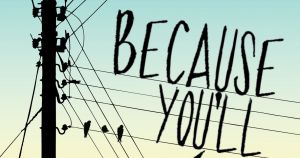
Review: The Angel Tree by Daphne Benedis-Grab
Although the author got some of the details about blindness wrong, she seems very committed to diversity, and I enjoyed this book a lot.

Although the author got some of the details about blindness wrong, she seems very committed to diversity, and I enjoyed this book a lot.

Eric Lindstrom wrote an excellent portrayal of a blind teenage girl, so we’re happy to invite him to the site to discuss his approach, blindness tropes, and more.

Parker Grant is a complex, flawed character whose blindness was handled realistically; a big part of her life, but not the only part of her life. This is definitely a book I will be recommending.

Although I sometimes genuinely enjoyed myself while reading this book, those times were unfortunately outweighed by the serious inaccuracies.

It’s sadly hard to see beyond Emma’s reflections on what she can’t do now that she’s lost her sight to actually find out how she’s adapting and adjusting.

It felt like the author used Moritz’s echolocation as a way of avoiding a realistic portrayal of blindness; too many tired blindness tropes popped up throughout the book for me to love and champion it the way others have.

Although Laureth didn’t represent me as a blind person, Sedgwick didn’t feed off tropes and stereotypes; instead, he met with many young blind people and found out about their lives.

Overall, I found the portrayal of pediatric cancer iffy—better than some, worse than others. Rather than unthinking stereotypes, though, these shortcomings felt like a result of a lack of personal experience or oversights in research.

I would’ve enjoyed Jerk, California a lot more if its depiction of life with Tourette’s Syndrome was handled as well as its technical depiction of Tourette’s Syndrome itself.

Although it lacks detail in its portrayal of spina bifida, this is a well-written, cute series featuring a very cool character with the condition.